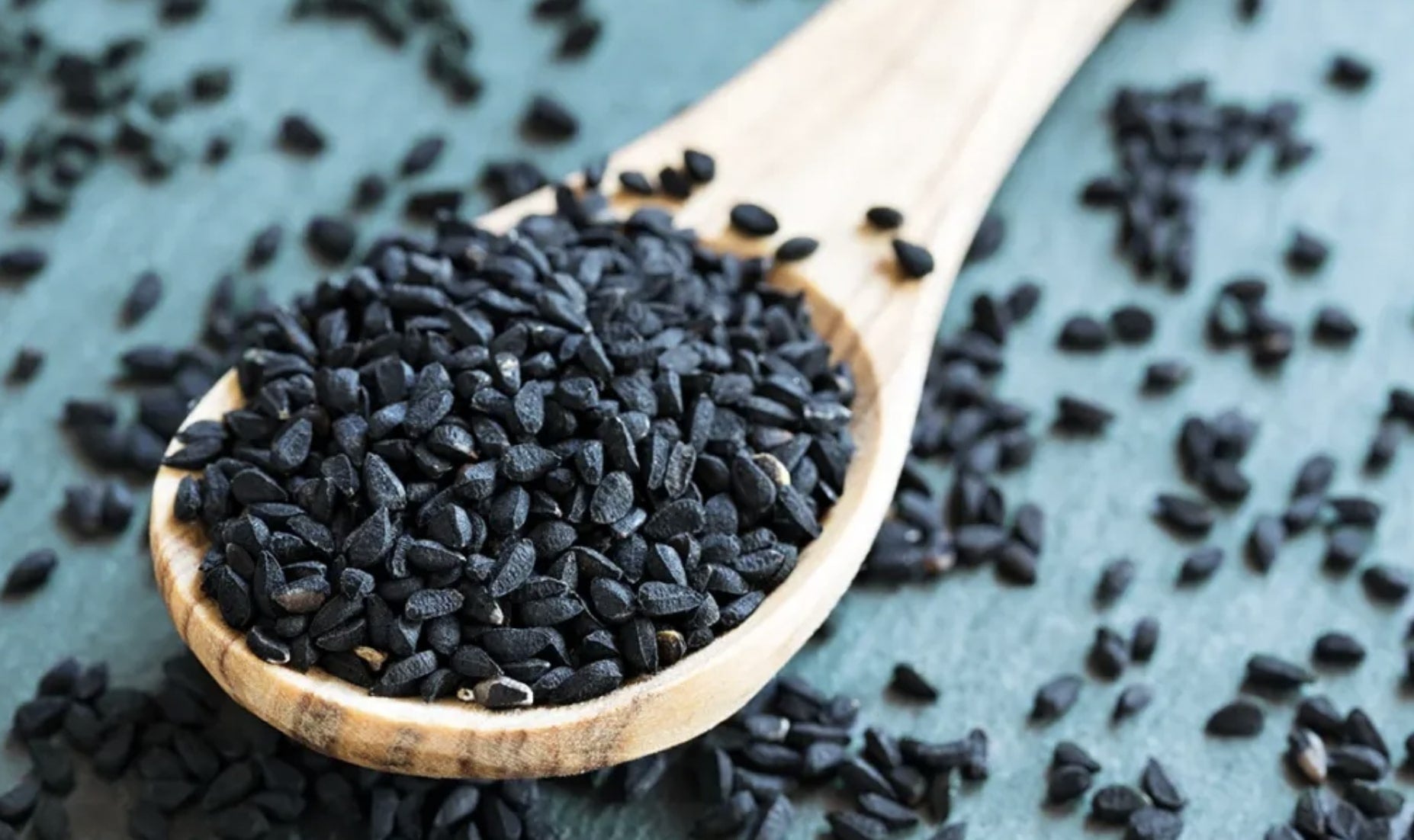Black seed, or Nigella sativa, is a plant historically valued for its oil, which has been used medicinally across various cultures. The oil is rich in antioxidants, notably thymoquinone, and omega-3 fatty acids that offer significant health benefits. It supports skin health with its moisturizing, anti-inflammatory, and antioxidant properties, potentially reducing symptoms of skin conditions like acne, eczema, and psoriasis. Black seed oil also benefits hair health, potentially promoting hair growth and scalp health when taken orally or applied topically.
The history of black seed oil
Did you know that black seed oil was found in the tomb of King Tutankhamun, aka King Tut? That's right, this oil was considered so valuable that it was included in the possessions of the famous pharaoh to take with him to the afterlife. And it wasn't just the ancient Egyptians who valued black seed oil - it was also used by ancient Greeks and Romans for its medicinal properties.
Fast forward to the Middle Ages, and black seed oil became a staple in traditional Islamic medicine. It was widely used for various ailments, from digestive problems to skin issues, and was even said to have miraculous healing powers.
In more recent times, black seed oil has gained popularity as a health food supplement, with proponents claiming it can do everything from boosting the immune system to alleviating inflammation and supporting natural beauty from the inside out. While some of these claims are more backed by science than others, there's no denying that black seed oil has some impressive health benefits.



































